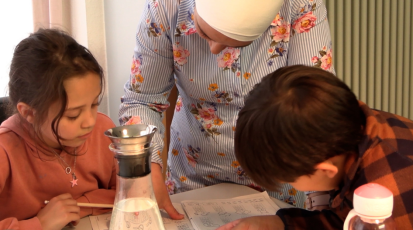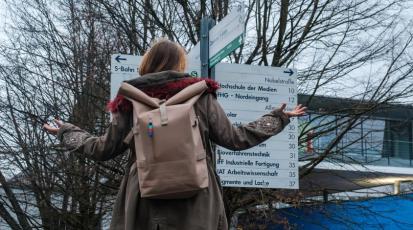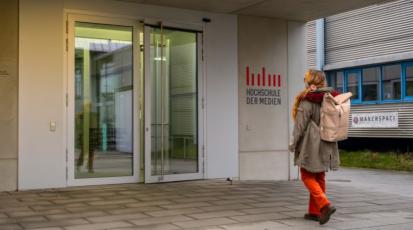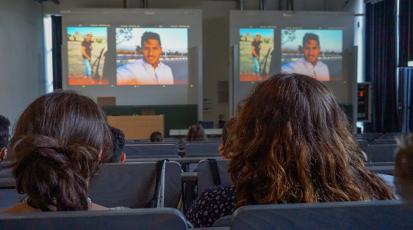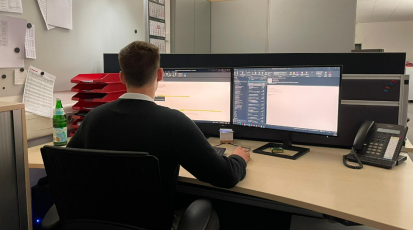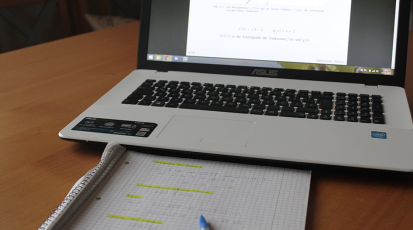The Story of a Working-Class Child's Path to Success
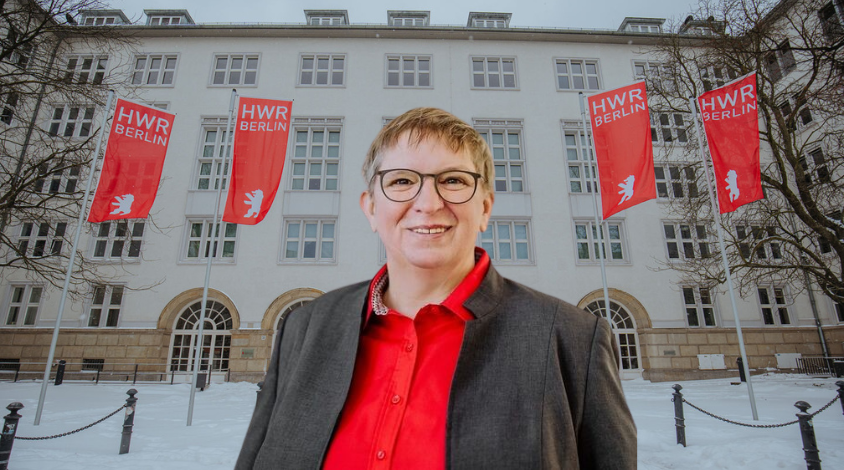
"I've always had a language problem" - and yet she is now a professor: Monika Huesmann is a working-class child and has worked her way up to a professorship despite a number of obstacles. Her path is characterized by ups and downs and reflects the challenges that many working-class children face on their educational path.
Huesmann grew up in a family where education was not given. "In my family, there was a relatively high lack of education," she said, emphasizing that, "my parents had a very rural background". Because all her friends attended the grammar school (Gymnasium) after the elementary school (Grundschule), Huesmann wanted to follow the same path. With no background knowledge, an unclear educational plan, and zero support from her family, Huesmann enrolled at a grammar school on her own after fourth grade. "It's assumed that everyone knows what schools offer and what they don't," explained Huesmann, adding, "but not every family has this knowledge."
The long road to university
Huesmann quickly encountered her first difficulty – financial pressure. The lack of resources and lack of experience made learning at grammar school a real challenge. She could not afford essentials such as books, calculators, or class trips. She was completely on her own. "I had no practice when it came to learning, and nobody at home could help me with my homework either." Her increasingly poor grades led her to leave grammar school in the tenth grade and train as an educator. She flourished in her profession and was passionate about it, but she never lost sight of her higher school certificate (Abitur). She tried to catch up on her higher school certificate but was rejected. The reason for rejection? Her age. In Baden-Württemberg, you can attend grammar school until you are 24 years old. Unfortunately for Huesmann, she was 25 at the time. She started an apprenticeship and once again, quickly reached the limits of her options. "I was always at the end of my career after three or four years and all other jobs were always only open to academics." She wanted more responsibility, more options and developed the desire to study. Despite all the hardships Huesmann had faced so far, she continued to have a positive attitude.
While catching up on her higher school certificate at a day school (Tagesschule) in Berlin, she completed another apprenticeship, began studying business administration and graduated as the best economics student. However, her detours lead to her having difficulties in finding a job after graduation – despite her varied professional experience and excellent degree. She felt depressed due to being rejected from almost all her applications, "almost all of them with the reason that I was too old," she says. Once again, she is confronted with her non-academic background, as she has no network. "My father was not the CEO of a company and was unable to get me my first job, neither during my internship nor later." However, through perseverance, hard work and her first contact with the university world, she eventually ended up at the Berlin School of Economics and Law and began working as a professor.
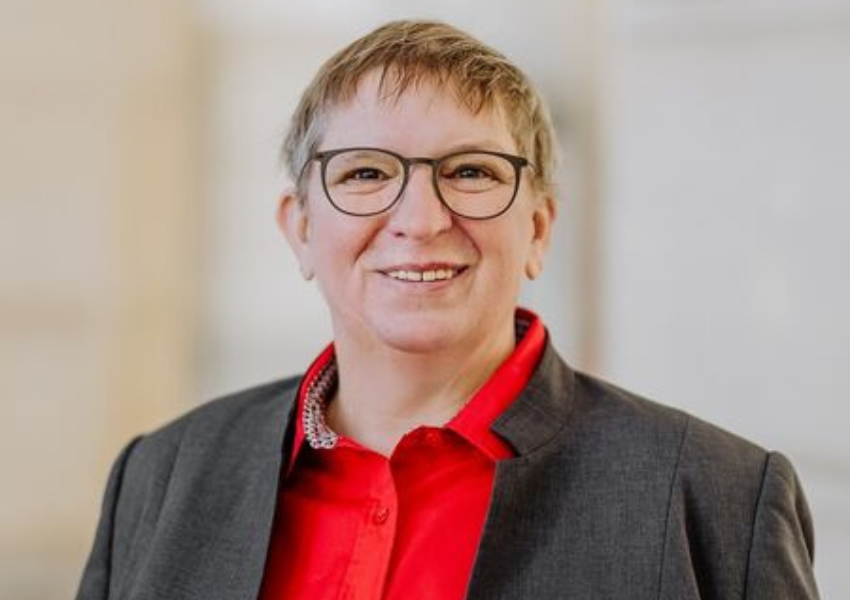
Inequalities in education
Huesmann’s background illustrated the barriers that many working-class children have to overcome on their way to higher education. According to the Higher Education Report from 2020, only 27 percent of elementary school pupils from a non-academic household go on to study at university. For children from academic backgrounds, this figure is more than double at 79 percent. Huesmann is familiar with the current figures and is not surprised by them based on her own experience. She believes that one of the reasons for these inequalities is the reputation of apprenticeship. "There is often a difference in earnings and in the distribution of tasks," she explains. "Almost everything that involves more responsibility, creativity or independent design is passed on to Bachelor's or Master's graduates and not to people who have completed an apprenticeship." Huesmann believes that the recognition of apprenticeships in Germany is still too low.
According to Huesmann, it is precisely this area that could be a solution for increasing the number of non-academic children in universities. If the reputation of apprenticeships were to improve and there were more attractive apprenticeship opportunities with better salaries, Huesmann imagines that more children with an academic background would choose this apprenticeship path. "Hardly anyone thinks about the fact that this is the other side of educational equality: It is not only about more students with working class background, it is also about more students with academic family background feeling free to decide for apprenticeship", says Huesmann. Time and time again, it becomes clear that the topic affects her personally. When it comes to possible approaches for improving the situation for non-academic children, she doesn't have to think long. "Children with academic family background must be able to decide more freely to start with an apprenticeship, while children with non-academic background must be able to decide more easily to go to university.”
Criticism of the German education system
Due to the lack of knowledge in her parental home, Huesmann, like some other working-class children, was uninformed about the various educational opportunities presented to her at the start of her education. Her parents' main concern for her and her two siblings was that they should earn money as quickly as possible. Because Huesmann pursued what she actually wanted, she often rebelled against her parents. Looking back, she criticizes that the demands placed on parents in the German education system are too high. With regard to the education system and support for working-class children, she emphasizes the need for change. She feels it is particularly important that teachers provide information about possible future educational paths. She also calls for every school to have well-equipped support for children who do not have certain resources or prerequisites. "Schools must be equipped in such a way that real equality of opportunity is possible," emphasizes Huesmann. She herself says that she only discovered that there is also specialist knowledge to be learned in German when she graduated from grammar school. "My language was always simple, I just didn't know any foreign words," she says, explaining that, "it's always labeled as either you can talk like this or you can't, but you're not taught how to do it." Huesmann likes the concept of Gesamtschulen (comprehensive schools), she feels that grammar school as a type of school is an "exclusionary event." At a comprehensive school, you can offer different options that are open and not exclusive.
Support for working-class children
Huesmann also sharply criticizes the BAföG system, which offers financial support to many students in Germany.
"BAföG" is the abbreviation for the Federal Training Assistance Act. It is a state social benefit designed to enable everyone, regardless of their social and economic situation, to complete an apprenticeship or study in line with their abilities and interests. Pupils receive BAföG as a grant. They do not have to pay anything back. Students at higher technical colleges, academies and universities receive half of BAföG as a grant and half as a loan. The loan must of course be repaid.
The repayment obligation in particular is a problem. "The way we have BAföG now makes no sense," says Huesmann. "The idea of building up debts over three to five years with uncertain career prospects is a reason for more modest households not to apply for BAföG in the first place." She believes that changes are necessary. "There need to be higher income limits so that those who actually need it actually get it," adding, "it also needs to be significantly higher and there need to be much clearer exceptions when it comes to repayment." She herself got help in the form of initiatives.
Initiatives such as Arbeiterkind.de or the Hans Böckler foundation are very important support options for working-class children.
As a professor with a non-academic background, it is important for Huesmann to support students without an academic background in particular. Her personal experiences seem to shape her approach to teaching. At university, she tries to work around insecurities and does not assume that all students have the same level of knowledge about university life. "I often notice, for example, that some people are unsure how to address me in an email," she says, "if you don't clear up such uncertainties, they won't know how to write an email to a professor until the bitter end." In her commitment to educational equality, she is not only active as a professor. She is involved in many initiatives such as the "Hans Böckler foundation", which campaigns for the interests of non-academic children. She is even a liaison lecturer there. "Initiatives such as Arbeiterkind.de or the Hans Böckler foundation are very important support options for working-class children." She is also currently researching the topic of "first-generation students and professionals". Huesmann's story is not just the individual success of a working-class child who has managed to overcome the obstacles of the education system. She uses her story also as a call for change. Through her research and active involvement in initiatives for non-academic children, she is helping to ensure that the voices of working-class children are heard.
This article is part of the group dossier on "Educational inequalities in Germany". In this article, our editor Samira looks at the general situation of non-academic children. Lola's article deals with possible solutions that could change the situation.
Deine Meinung interessiert uns
Yes
No






